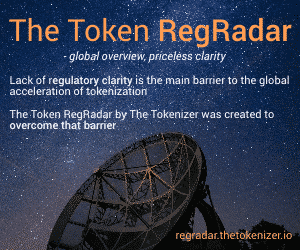SEC Harmonizes and Improves “Patchwork” Exempt Offering Framework
Rule amendments harmonize registration exemptions, eliminating complexity and facilitating access to capital and investment while preserving or enhancing important investor protections.
The Securities and Exchange Commission has voted to amend its rules in order to harmonize, simplify, and improve the multilayer and overly complex exempt offering framework. These amendments will promote capital formation and expand investment opportunities while preserving or improving important investor protections.
A core component of the federal regulatory regime is the requirement that all securities offerings be registered with the Commission or qualify for an exemption from registration. The registration process generally is designed for larger companies with substantial resources. As a result, many entrepreneurs and emerging businesses raise capital by selling securities in reliance on an offering exemption. This important capital formation activity ranges from raising seed capital for new businesses to growth capital for companies of all sizes, including those on the path to a registered initial public offering.
The amendments are the next step in the Commission’s efforts to improve the exempt offering framework for the benefit of investors, emerging companies, and more seasoned issuers. The amendments follow the Commission’s June 2019 concept release and March 2020 proposing release on the harmonization of offering exemptions and benefit from extensive public engagement. The amendments address gaps and complexities in the exempt offering framework that impede access to capital for issuers and access to investment opportunities for investors.

“For many small and medium-sized business, our exempt offering framework is the only viable channel for raising capital. These businesses and their prospective investors must navigate a system of multiple exemptions and safe harbors, each with different requirements,” said Chairman Jay Clayton. “While each component in this patchwork system makes some sense in isolation, collectively, there is substantial room for improvement. The staff has identified various costly and unnecessary frictions and uncertainties and crafted amendments that address those inefficiencies in the context of a more rational framework that will facilitate capital formation for small and medium-sized businesses and benefit investors for years to come.”
Fact Sheet
Facilitating Capital Formation and Expanding Investment Opportunities by Streamlining Access to Capital for Entrepreneurs
Nov. 2, 2020
The Securities and Exchange Commission today amended the rules under the Securities Act of 1933 to simplify, harmonize, and improve certain aspects of the exempt offering framework to promote capital formation while preserving or enhancing important investor protections.
The amendments generally:
- Establish more clearly, in one broadly applicable rule, the ability of issuers to move from one exemption to another;
- increase the offering limits for Regulation A, Regulation Crowdfunding, and Rule 504 offerings, and revise certain individual investment limits;
- set clear and consistent rules governing certain offering communications, including permitting certain “test-the-waters” and “demo day” activities; and
- harmonize certain disclosure and eligibility requirements and bad actor disqualification provisions.
An updated summary chart of the offering exemptions is included at the end of this fact sheet for reference.
Background
Entrepreneurs and emerging businesses often use the exempt offering framework under the Securities Act for such purposes as raising seed capital for a new business or funding their businesses’ growth. This can be a critical step on the path to an initial public offering and navigating that path has required navigating the complex exempt offering framework. The complexity of that framework reflects its evolution over time through legislative changes and Commission rules that have resulted in differing requirements and conditions for exemption. In many cases, businesses, particularly smaller enterprises, have found the framework confusing and difficult to navigate.
In March 2020, the Commission issued proposed amendments and solicited public comment on its proposals to simplify, harmonize, and improve the exempt offering framework under the Securities Act. Informed by the comments received, as well as other feedback including recommendations of the Commission’s advisory committees, the SEC’s Government-Business Forum on Small Business Capital Formation, and direct outreach to, and engagement with, investors and issuers, the amendments are intended to reduce potential friction points to make the capital raising process more effective and efficient to meet evolving market needs.
Highlights
Integration Framework. When issuers use various private offering exemptions in parallel or in close time proximity, questions can arise as to the need to view the offerings as “integrated” for purposes of analyzing compliance. This need results from the fact that many exemptions have differing limitations and conditions on their use, including whether the general solicitation of investors is permitted. If exempt offerings with different requirements are structured separately but analyzed as one “integrated” offering, it is possible that the integrated offering will fail to meet all the applicable conditions and limitations.
The amendments establish a new integration framework that provides a general principle that looks to the particular facts and circumstances of two or more offerings, and focuses the analysis on whether the issuer can establish that each offering either complies with the registration requirements of the Securities Act, or that an exemption from registration is available for the particular offering.
The amendments additionally provide four non-exclusive safe harbors from integration providing that:
- any offering made more than 30 calendar days before the commencement of any other offering, or more than 30 calendar days after the termination or completion of any other offering, will not be integrated with such other offering(s); provided that:
- in the case where an exempt offering for which general solicitation is prohibited follows by 30 calendar days or more an offering that allows general solicitation, the issuer has a reasonable belief, based on the facts and circumstances, with respect to each purchaser in the exempt offering prohibiting general solicitation, that the issuer (or any person acting on the issuer’s behalf) either did not solicit such purchaser through the use of general solicitation or established a substantive relationship with such purchaser prior to the commencement of the exempt offering prohibiting general solicitation;
- offers and sales made in compliance with Rule 701, pursuant to an employee benefit plan, or in compliance with Regulation S will not be integrated with other offerings;
- an offering for which a Securities Act registration statement has been filed will not be integrated if it is made subsequent to:
- a terminated or completed offering for which general solicitation is not permitted,
- a terminated or completed offering for which general solicitation is permitted that was made only to qualified institutional buyers and institutional accredited investors, or
- an offering for which general solicitation is permitted that terminated or was completed more than 30 calendar days prior to the commencement of the registered offering; and
- offers and sales made in reliance on an exemption for which general solicitation is permitted will not be integrated if made subsequent to any terminated or completed offering.
Offering and Investment Limits. The Commission is amending the current offering and investment limits for certain exemptions.
For Regulation A, the amendments:
- raise the maximum offering amount under Tier 2 of Regulation A from $50 million to $75 million; and
- raise the maximum offering amount for secondary sales under Tier 2 of Regulation A from $15 million to $22.5 million.
For Regulation Crowdfunding, the amendments:
- raise the offering limit in Regulation Crowdfunding from $1.07 million to $5 million;
- amend the investment limits for investors in Regulation Crowdfunding offerings by:
- removing investment limits for accredited investors; and
- using the greater of their annual income or net worth when calculating the investment limits for non-accredited investors; and
- extend for 18 months the existing temporary relief providing an exemption from certain Regulation Crowdfunding financial statement review requirements for issuers offering $250,000 or less of securities in reliance on the exemption within a 12-month period.
For Rule 504 of Regulation D, the amendments:
- raise the maximum offering amount from $5 million to $10 million.
“Test-the-Waters” and “Demo Day” Communications. The Commission is amending offering communications rules, by:
- permitting an issuer to use generic solicitation of interest materials to “test-the-waters” for an exempt offer of securities prior to determining which exemption it will use for the sale of the securities;
- permitting Regulation Crowdfunding issuers to “test-the-waters” prior to filing an offering document with the Commission in a manner similar to current Regulation A; and
- providing that certain “demo day” communications will not be deemed general solicitation or general advertising.
Regulation Crowdfunding and Regulation A Eligibility. The amendments establish rules that permit the use of certain special purpose vehicles that function as a conduit for investors to facilitate investing in Regulation Crowdfunding issuers. The amendments additionally impose eligibility restrictions on the use of Regulation A by issuers that are delinquent in their Exchange Act reporting obligations.
Other Improvements to Specific Exemptions. The amendments also:
- change the financial information that must be provided to non-accredited investors in Rule 506(b) private placements to align with the financial information that issuers must provide to investors in Regulation A offerings;
- add a new item to the non-exclusive list of verification methods in Rule 506(c);
- simplify certain requirements for Regulation A offerings and establish greater consistency between Regulation A and registered offerings; and
- harmonize the bad actor disqualification provisions in Regulation D, Regulation A, and Regulation Crowdfunding.
What’s Next?
The amendments will be effective 60 days after publication in the Federal Register, except for the extension of the temporary Regulation Crowdfunding provisions, which will be effective upon publication in the Federal Register.
1 Comment
-
Pingback: SEC disapproves the rulebook filing by Boston Security Token Exchange (BSTX) | The Tokenizer







